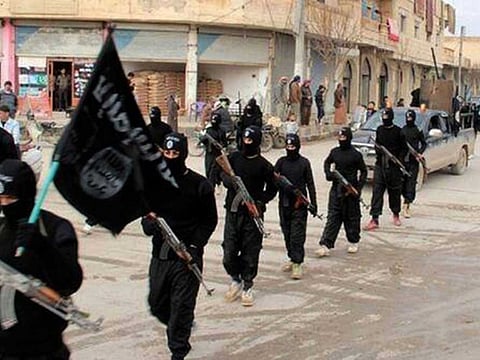The new ‘normal’ of terrorism
While real dangers should not be brushed aside, we need to focus on an alternative model of societal order that reduces the appeal of terrorism

Daesh (the self-proclaimed Islamic State of Iraq and the Levant) recently found easy targets in France, Turkey and Belgium and the Taliban showed their mettle in Pakistan. Other groups continue to fill the airwaves around the world as well, anxious for relevance when terrorism is largely void of meaningful content, even as the spectre of “warfare” looms over the horizon. Increasingly, we are all invited to live with violence, now that humankind has reached a plateau in viciousness of what passes for civilisation.
To be sure, terrorist acts are universal and can hit at random from Jakarta to Paris, and now Brussels. Increasingly, policy-makers are called upon to deal with evolving threats using both traditional means of military mobilisation and economic sanctions whenever possible. There is, consequently, a “new normal” that is creeping into our lives, in which terrorism will no longer be isolated to extremist religious groups or rogue states, but may also include non-state actors eager to perpetrate crimes through bioterrorism, cyberwarfare, eco-terrorism, narco-terrorism and, of course, the ultimate nightmare, nuclear terrorism that could include attacking nuclear facilities, purchasing weapons or building crude devices that will disperse radioactive materials and kill many more than what we have witnessed to date.
Under the circumstances, how can the international community curb, contain and possibly defeat terrorism? Will groups like Daesh continue to fester and threaten with its trail of horrors? Is there any way to cope with challenges deliberately designed by rogue states and terrorist groups? Can the international community offer an alternative model of societal order that reduces the appeal of terrorism?
The last question is what we had better focus on if we are to avoid a Third World War or, more likely, perpetual conflicts. Naturally, most of us are resigned to accept the dangers because we are powerless to stop determined foes ready to sacrifice their own lives, and inflict as much damage as possible on bystanders. Yet, it is critical not to exaggerate the threats either, since whipping up hysteria benefits no one. Although about a thousand Europeans died in terrorist acts after 2004, cynics will claim that security firms and arms manufacturers are giddy after every horrible attack. But we ought to remember, as the historian Juan Cole stressed, that between 2005 and 2015, 71 Americans were killed on US soil at the hands of extremists. “That is an average of a little over seven per year”.
Cole reported that in the same decade, “some 303 Americans died from terrorism worldwide, or 30.3 per year”, compared to 130,557 who perished from unintentional injuries “like falling down in the bathtub” or the 41,149 who died from suicide.
These figures tell us only part of the story. According to a March, 2015, report titled Body Count, published by three respected German, American and Canadian teams (Physicians for Social Responsibility, Physicians for Global Survival and International Physicians for the Prevention of Nuclear War), the shocking death toll of the United States’ “War on Terror” since 9/11 — when a total of 2,996 people died and about 6,000 were injured — may have reached two million. That was a mere estimate.
In reality, the figures are much higher, and without falling into the numbers game, the Iraqi example illustrates an existential dilemma. While the Iraq Body Count team or the highly valued British medical journal The Lancet advanced high death tolls in this important case, they only accounted for the victims of violent conflict, not the many more who died as a result of the damage that the decade-long war brought. Indeed, there are now undisputed United Nations figures that confirm at least 1.7 million Iraqi civilians died because of the sanctions imposed on Baghdad, half of whom were children. This figure will live in infamy even if Madeleine Albright, who was the US secretary of state at the time, shamelessly affirmed that “the price [was] worth it”.
Of course, the majority of those killed in wars and/or terrorist acts before and after 9/11 were Muslims, which Stephen M. Walt, a professor of international relations at Harvard, described in a prescient 2009 essay as follows: “How many Muslims has the United States killed in the past 30 years, and how many Americans have been killed by Muslims? Coming up with a precise answer to this question is probably impossible, but it is also not necessary, because the rough numbers are so clearly lopsided.”
So, what is the alternative model of societal order that might reduce the appeal of terrorism? Well, one may consider reducing or, better yet, abandoning imperial conquests and ending torture. It may also be useful to terminate the kind of incarcerations like Abu Ghraib and Guantanamo Bay, which infuriate many, and encourage a few to take up arms. Meaningless drone assassinations that kill innocent civilians who are not “collateral damage” might also be helpful. In other words, one way to reduce brutality may be to consider putting an end to perpetual wars.
Dr Joseph A. Kechichian is the author of Iffat Al Thunayan: An Arabian Queen, London: Sussex Academic Press, 2015.


